About the Training Series
WHAT IS THE TRAINING SERIES ABOUT?
WHO IS THIS TRAINING FOR?
This training is for leaders and frontline practitioners in organizations serving immigrant families across a variety of community settings in Doña Ana County, NM.
WHEN IS THE TRAINING?
The 4 core training modules will be offered in-person in Las Cruces, NM and virtually on Zoom, as follows. Two optional complementary modules will also be offered on Zoom.
-
In-Person Training: February 2, 2024 | 9am – 4pm.
-
Virtual Training: February 8, 2024 | 9am – 12pm & February 9, 2024 | 9am-12:30pm.
-
Optional Virtual Complementary Modules: February 23, 2024 | 9am – 12:00pm
WHO IS CONDUCTING THE TRAINING?
This training series has been developed by Dr. Megan Finno-Velasquez, Associate Professor of Social Work at New Mexico State University (NMSU) in partnership with Dr. Tatiana Londoño, Assistant Professor of Social Welfare at UCLA, and Dr. Anayeli Lopez, Assistant Professor Social Work at NMSU. Learn more about our trainers below. We also thank the W.K. Kellogg Foundation for their generous support of this project!
WHO CAN I CONTACT WITH QUESTIONS?
If you have any questions about the training offerings or content please contact Sophia Sepp. Her contact info can be found below in the “Meet Our Team” section.
Training Modules
Module 1: Trauma Conceptualizations & Migration Trauma
Module 1 covers traditional, contemporary, and cultural conceptualizations of trauma as they relate to immigrant communities and how these conceptualizations guide culturally responsive practices. It also reviews the unique and varied experiences pre-migration, in-transit, post-migration, and in resettlement. It discusses the cumulative effects of migration on mental, behavioral, and physical health, as well as culturally relevant trauma responses and warning signs.
Module 2: Historical & Political Context
Module 2 provides an overview of migration flows to the U.S. and current relevant immigration policies. It also reviews differences between immigrants, refugees, unaccompanied children, and unaccompanied refugee minors, as well as differences among the various legal statuses in the U.S
Module 3: Trauma-Informed Practices & Interventions with Immigrants
Module 3 provides an overview of the core principles of trauma-informed care for immigrants as well as culturally specific practices when working with immigrant populations. It also reviews clinical assessment measures and interventions relevant for use with immigrants.
Module 4: Immigrant-Inclusive Organizational Policies and Practice
Module 4 offers recommendations and guidelines for organizational policies and practices to increase inclusivity of immigrant families and their unique needs and experiences.
Module 5: Secondary Trauma among Practitioners Working with Immigrant Populations
Module 5 provides an understanding of how organizations can prevent and mitigate secondary trauma in the workplace, including concrete tools for reducing secondary trauma in organizations working with immigrant communities.

